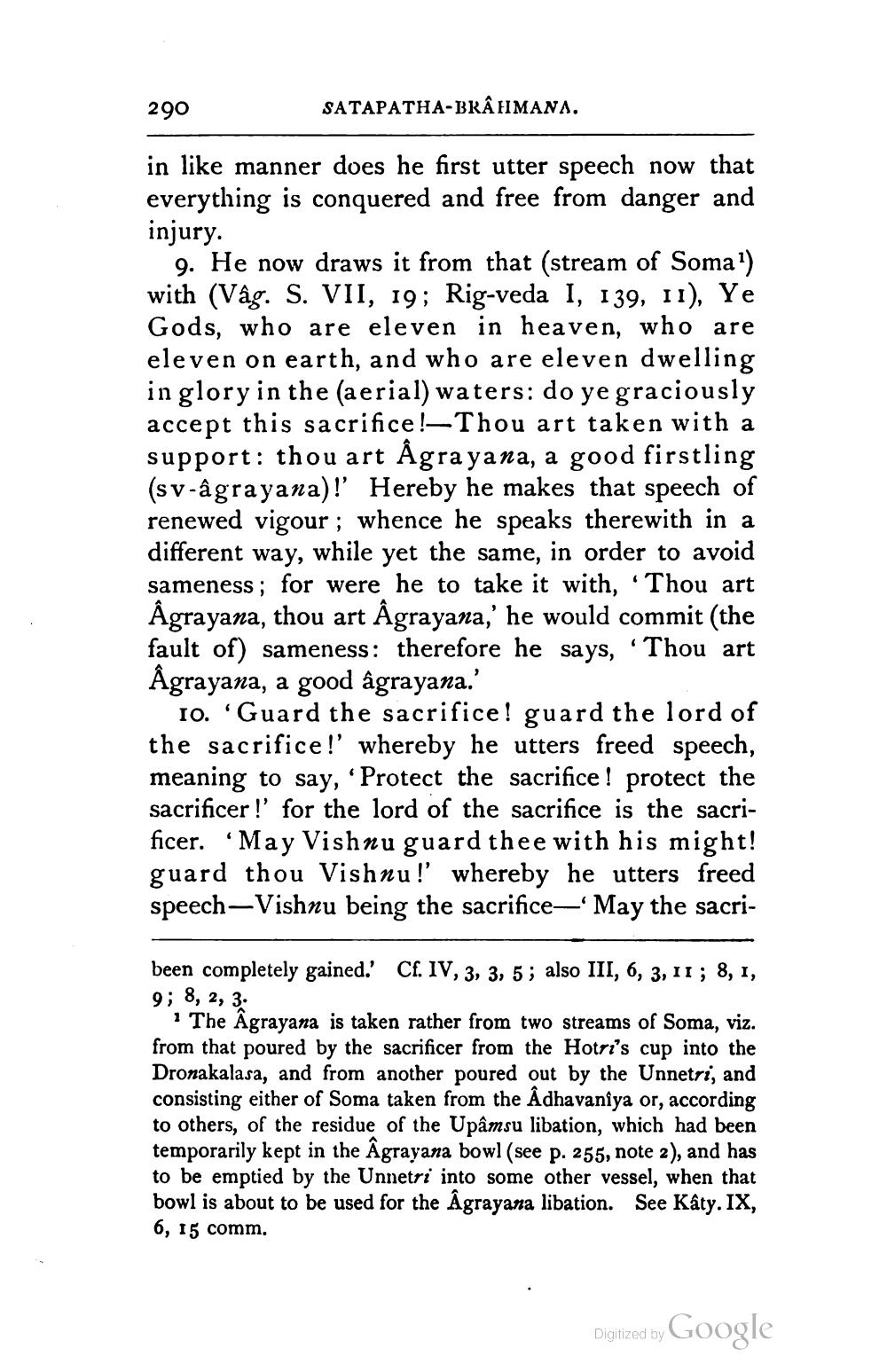________________
290
SATAPATHA-BRAHMANA.
in like manner does he first utter speech now that everything is conquered and free from danger and injury.
9. He now draws it from that (stream of Soma) with (Vâg. S. VII, 19; Rig-veda I, 139, 11), Ye Gods, who are eleven in heaven, who are eleven on earth, and who are eleven dwelling in glory in the (aerial) waters: do ye graciously accept this sacrifice !- Thou art taken with a support: thou art Ågrayana, a good firstling (sv-âgrayana)!' Hereby he makes that speech of renewed vigour ; whence he speaks therewith in a different way, while yet the same, in order to avoid sameness; for were he to take it with, “Thou art Âgrayana, thou art Âgrayana,' he would commit (the fault of) sameness: therefore he says, 'Thou art Ägrayana, a good agrayana.'
10. Guard the sacrifice! guard the lord of the sacrifice!' whereby he utters freed speech, meaning to say, 'Protect the sacrifice! protect the sacrificer!' for the lord of the sacrifice is the sacrificer. 'May Vishnu guard thee with his might! guard thou Vishnu!' whereby he utters freed speech-Vishnu being the sacrifice—May the sacri
been completely gained.' Cf. IV, 3, 3, 5; also III, 6, 3, 11; 8, 1, 9; 8, 2, 3.
The Âgrayana is taken rather from two streams of Soma, viz. from that poured by the sacrificer from the Hotri's cup into the Dronakalasa, and from another poured out by the Unnetri, and consisting either of Soma taken from the Adhavaniya or, according to others, of the residue of the Upâmsu libation, which had been temporarily kept in the Agrayana bowl (see p. 255, note 2), and has to be emptied by the Unnetri into some other vessel, when that bowl is about to be used for the Âgrayana libation. See Kâty. IX, 6, 15 comm.
Digitized by Google




